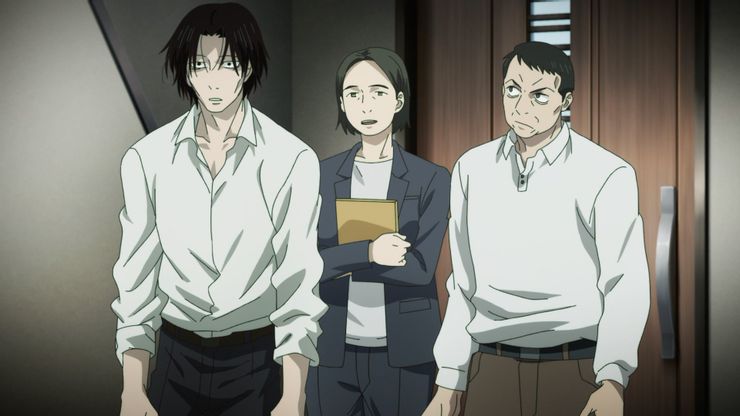This feel-good series shows the value of investing in one’s own environment instead of glorifying escapism and covers crucial mental health issues.
In recent years, the isekai genre has been a dominant force in the anime industry. While the formula has been utilized to produce some intriguing stories with meaningful reflections on the world at large, shows that use the narrative element have often been regarded as escapist wish fulfilment. Additionally, the recurring focus on a mistreated protagonist with superhuman skills has led to many of them being classified as power fantasies.
At first sight, the edgy-sounding plot, RPG technical aspects and obligatorily long title all seem like grounds to conclude that Banished from the Hero’s Party and I Decided to Live a Quiet Life in the countryside is just the newest contribution to this trend. Yet despite these qualities, it is clearly not an isekai. Not only does the protagonist genuinely hail from the world the tale takes place in, but the anime’s subversion of standard isekai clichés develops a meaningful story about choosing a healthy alternative lifestyle.
Banished from the Hero’s Party relates the narrative of Gideon Ragnason, the older brother of the divinely selected Hero Ruti Ragnason. It takes place in a universe where every living being is awarded a job class known as a Blessing, which governs their talents, abilities and subconscious nature. Although he initially travelled with Ruti on her adventure to slay the Demon Lord, the party’s Sage, Ares Sorwa, convinced Gideon that his Blessing of Guide was a detriment to their objective, as it barred him from obtaining high-level abilities or stats.
Hurt by this betrayal, Gideon changed his name to Red and went to the countryside to become an apothecary and invest in the small-town community of Zoltan. He is finally joined by Rit, a previous travel companion and princess of a nearby kingdom, who is recognized as an ace explorer.
Largely owing to its calm tone and amusing nature, Banished from the Hero’s Party is able to convey how Red’s response to his position is both satisfying and constructive. It’s apparent that he finds delight in contributing and making a difference in the lives of the people of Zoltan. While he periodically reflects back on his ostracization from the party, he fulfils himself with his new lifestyle and the friends he’s made in it.
Some of the best isekai series contain tales that deliver insightful commentary on the achievement-based attitude of modern society. While many such heroes start on a path of self-preservation or revenge, that is not the case with Red. By portraying Red as a native to his planet and dedicated to improving it, although, on a lower level, the series emphasizes that it’s possible to love the world even when society undercuts one’s role in it. Rather than becoming stronger in an attempt to establish his superior traits, Red distances himself from the very idea that one’s worth is measured by a single criterion. He leaves Ruti’s side not out of bitterness or hatred but out of care and concern for her and the planet she defends.
Furthermore, the series highlights that withdrawing from a meritocratic hustle culture might be helpful for one’s mental health. Red’s new life allows him to pursue important pursuits while building wholesome relationships with Zoltan’s people and an uplifting romantic partnership with Rit. Even when resident adventurers offer him promotion possibilities to recruit him for their own journeys, Red finds no desire to break from the lifestyle that has offered him true happiness. This is in stark contrast to the isekai genre’s penchant to develop protagonists that are only able to fulfil themselves through their accomplishments and the vast abilities that they wield.
Conversely, Ruti’s party is seen to be led to destructive ends by this performance-oriented mentality. Ares’s ejection of Red from the gang leads to a paranoid dynamic wherein the members are unable to trust each other. Worst of all, Ruti is unable to find any coping strategy that relieves her from her Blessing’s relentless need to get stronger and move onward with her mission. While Red gave her a loving family member who viewed her as more than simply the Hero, his removal leaves her solitary in a destructive atmosphere devoid of such support.
Though Red has not encountered Ruti or her allies since his departure, it will be intriguing to observe how the two sides interact when they cross paths again. Should Red find cause to join the organization once more out of obligation, it’s uncertain what toll this could take on his emotional welfare. Still, it’s evident that whatever path Red chooses, he’s doing something that he believes makes his world a better one. Even if other adventurers criticize him for being complacent, his dedication to Zoltan’s wellness makes his behaviour a far cry from the angst-driven self-indulgence featured in many isekai titles.
Banished from the Hero’s Party is based on a series of light novels written by Zappon and published by Kadokawa Shoten. The anime is now available through simulcast on Funimation in both subtitled Japanese and dubbed English.

